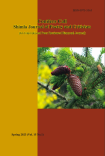The Emergence of a Dalit Progressive Thinker in TheUntouchable Story
The Indian untouchables form a thick crust of faceless and nameless human anthill which has no singer of their own agonies. In social arena, it is the high caste Hindu reformers who weep for them… But what is pitiable is the absence of any literary efforts by the untouchables to stimulate and inspire a genuine 12 0 untouchable literary movement as an integral part of the literature of the mainstream. How long will they wait for charity and generosity of others? How long will they stay in the literary map as the recipient of one-way love and charity? Where is the untouchable version of Indian literature?
The above lines are a reminder of the fact that the nameless and identity less community of the untouchables are completely absent not only in the social sphere but also in the literary field. Literature by the Dalits and for the Dalits are conspicuously absent in the academia (at least during the 1950s) and hence, there was a reliance on the upper caste narratives and portrayal of the Dalit characters to provide a sense of representation. In such a scenario, D. P. Das’s autobiography The Untouchable Story assumes immense relevance. D. P. Das seems to emphasize on the need of an untouchable literary voice who can narrate with panache the enormous perilous life the untouchables lead. His autobiography is thus an attempt to challenge the megalomania of the upper caste gentry which they experience after giving concession and showing false sympathy to the lower castes. It bears an example of the delimitations of the untouchable individuals which prevents them from an upward social mobility and his rational plea to present their story and exasperation in their words and not through the words of the mainstream upper caste writers.
Moumita Sarkar

